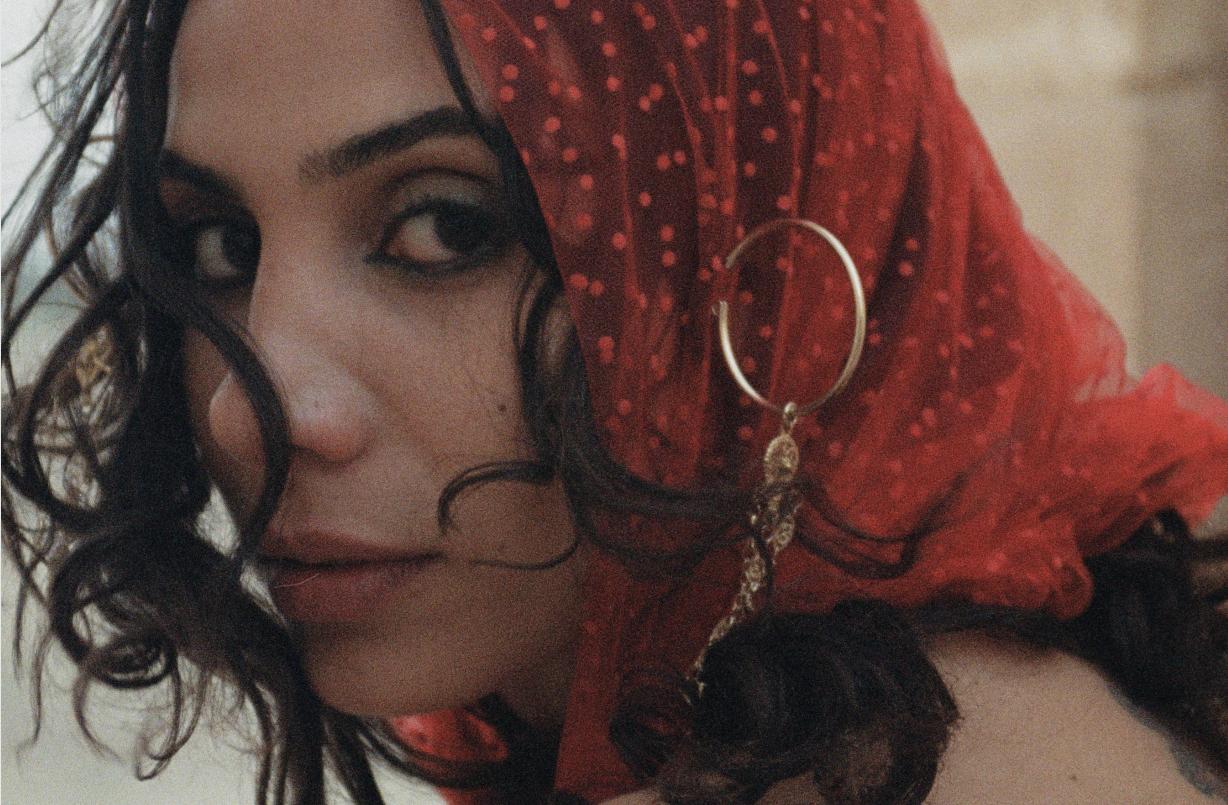[vc_row][vc_column][rev_slider_vc alias=”article-header-banner”]
I was born in a city along the Silk Road, in Samarkand, Uzbekistan, where my ancestors lived for over 2000 years, making my Jewish identity simultaneously Bukharian, Sephardic, Mizrahi, and Russian-speaking. When I was 14, my family migrated to the United States, and “American” was added to my intersectional identity.
Growing up in America challenged my identity. During my college days and formative years, when I would walk into any mainstream Jewish institution, like a Hillel or the JCC, I felt that I had to check core parts of my identity at the door in order to fit it.
“Fitting in” is a theme in the lives of many Mizrahi Jews in America. We live this double life. Inside our own communities we are true to ourselves, but outside we are seen as insular. And since we don’t want to explain ourselves to others constantly, we become stripped of our rich culture and heritage in public and usually what is left is just our cuisine, customs and our ethnic background that people know about.
Mizrahi is a term used to describe Jewish communities with origins in the Middle East, North Africa, West Asia, Central Asia, and Caucasus. The term, which means Eastern in Hebrew, dates back to the Babylonian Exile in 586 BCE. Mizrahi traditions can be traced back to the first Holy Temple in Jerusalem. Historically, Mizrahi Jews have resided in what is known now as Muslim and Arab countries for years but their community is older than Islam itself. Being Mizrahi is more than an ethnic background, cuisine, or customs; it is a Jewish way of life that is unique in its own way that I believe all Jews can learn and benefit from.
Our culture is family-oriented and communal. In contrast to other American Jewish communities, where the synagogue is the center of communal life, we build community right inside of our homes with our family and children. We Mizrahi Jews are known for our rich hospitality, tight-knit familial ties, and our tremendous respect for our elders and community rabbis. We believe that to preserve our Mizrahi heritage we must honor our elders and community leaders who are at the forefront of the Mizrahi Jewish narrative.
One way we do this is by hanging portraits of elders and rabbis on the walls of our homes to remind us where we come from and where we are going. These photos help our children to create a family narrative and intergenerational connection through genarations. When we visit our grandparents home, my kids really quickly notice the same photos on the walls. Their grandparents tell them stories about the people and so the stories are passed from generation to generation. When COVID-19 hit, we didn’t have to change much in the realm of Jewish education because it has always taken place in the home.
I believe that the single most important thing you can do for your family may be the simplest of all: develop a strong family narrative. Knowing stories of your ancestors gives you a tremendous amount of confidence, sense of belonging, and foundation for your identity. And in this I believe that the mainstream American Jewish community can learn from the Mizrahi community in this regard. And in this era when we are at home more than ever, it is a lesson that will strengthen us all.
I am so humbled that my work as an educator and an activist has allowed me to bring awareness of a diverse Jewish narrative and to begin the conversation of true Jewish diversity in the 21st Century. I have put together resources that can be useful to Jews of all backgrounds. This list consists of immersive and educational experiences that allow you to delve deep into the history and current events of the Mizrahi communities.
In the future, I want my children and yours to be able to walk into Jewish institutions proudly with their whole selves, knowing who they are, where they come from and to be welcomed without having to check core parts of their identity at the door.








